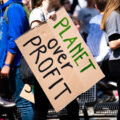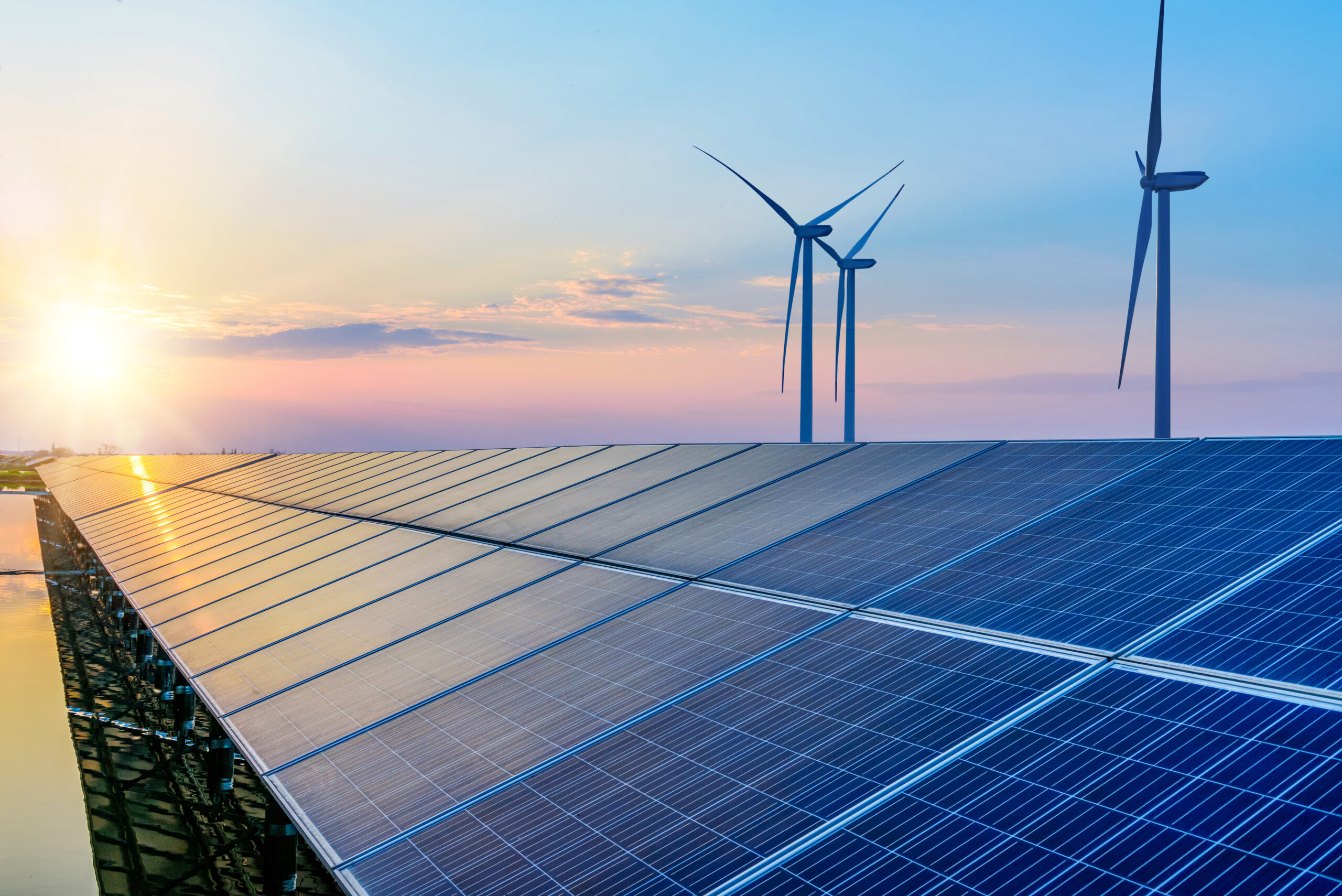Preaching to save the earth
Preaching to save the earth
Recently, the call for improved sustainability has grown more urgent. Not only within the media and politics, but also within religious circles. Find out what Dutch religious institutions are doing to prevent climate change.
Over the past six years, the call to fight against climate change and save the earth has become louder within religious circles.[1] For the first time ever, on September 1st 2021, Pope Francis, Ecumenical Patriarch Bartholomew, and Archbishop of Canterbury Justin Welby joined forces in a collective statement to address climate change.[2] The last sentences of the statement read: ‘Caring for God’s creation is a spiritual commission requiring a response of commitment. This is a critical moment. Our children’s future and the future of our common home depend on it.’[3] [4]
In Western, secularised society, the interference of religious institutions in the debate on climate change raises some interesting questions. What is the role of religion within public debates like this? And what are religious institutions doing to prevent climate change? Focusing on the Netherlands, this article will explore these questions.
Secular or post-secular society?
Should religion be allowed within the public debate? German philosopher Jürgen Habermas is well known for his theory of a post-secular society. He criticised secular societies for not allowing religious views within the public debate. According to Habermas, there should be mutual respect and room for dialogue between religious and non-religious people.[5] Within a secular society such as the Netherlands, there is a widespread conception that arguments should be supported by scientific proof.[6] Because of this belief, religious people feel left out. In order to be taken seriously in public debates, they need to provide scientific proof for their religious points of view.[7] A way of doing this is translating their religious ideas into secular terms in order to reach a broader audience.[8] How does this work within the debate on climate change?
A creation of God
When looking at the debate on climate change, a difference in reasoning can be found. As can be seen in the quote from the collective statement, Christians see the earth as God’s creation. Dutch political scientist and member of the Christian political party SGP, Cor Verkade, argues that “humankind should preserve God’s creation instead of exploiting it.”[9] However, when asked whether sustainability should be the top priority for churches, he disagrees. The primary mission of the church remains to preach the holy gospel, says Verkade.[10]
Within Islam, sustainability is also essential. One should not waste anything, says Sobana Sheikh Rashid.[11] Human consumption is ruining the earth, and greediness is bad for the soul since it drives you away from what really matters, she argues.[12] Rashid is part of the foundation ‘Groene Moslims’, which translates to Green Muslims. The organisation focuses on sustainability from a religious point of view. Rashid aims to develop educational resources to discuss sustainability at Islamic primary schools.[13]
Dutch Jew Elias Polman says principles from the Torah lead him to an interest in sustainability. A leading principle of Judaism is having a strong sense of responsibility. We are responsible for how we leave the earth for future generations, argues Polman. When asked why the Jewish community is not more visible in the fights against climate change in the Netherlands, he says: “antisemitism is still alive in the Netherlands. That is one of the reasons that the Jewish community is not so quick to take a stance as a group or at public events.”[14]
Raising the alarm
In March 2021, right before the Dutch elections, religious organisations shared a collective call for action: voting for the climate.[15] In the shared letter, they asked people to vote for parties that not only talk about sustainability, but will also act upon it. However, unlike in the past, they refrained from advising which party to vote for.[16] The open letter was signed by twelve different religious organisations, including Christian, Muslim, and Jewish voices.[17] By sharing this letter before the elections, the religious organisations very clearly positioned themselves within the public debate.
Could religion save the planet?
The Protestant Church of the Netherlands (PKN) supported the climate march in the Netherlands earlier in 2021. The march started and ended in the church. The earth should become better for future generations, says René de Reuver, secretary of the PKN.[18] Just like the Protestant Church in the Netherlands, the Protestant Church in Switzerland is trying to become more sustainable as well.
The Dutch organisation ‘Groene Kerken’ (Green Churches) aims to help churches become more sustainable. They offer a toolkit with steps on where to begin and how to go from there. Groene Kerken believes religious communities should have a visible and positive role in the way to sustainability. A Green Church is expected to take one sustainable step each year.[19] Within the Netherlands, there are currently 331 Green Churches.[20]
Are such initiatives useful, one might ask. One of the arguments on the importance of religious institutions to conquer climate change is that it motivates and inspires communities. Scientific facts about climate change are not always enough for action. However, religion taps into intrinsic values and beliefs.[21] Religious institutions also set an example for the people in their community. If the institutions are involved in living a more sustainable life, other people will be more likely to follow their lead.[22]
Sustainability: a shared responsibility
In conclusion, religious voices matter when it comes to debates about sustainability. Christians, Muslims, and Jews all share the notion that the earth is sacred and humans should take their responsibility.[23] Several churches in the Netherlands have taken the first steps in working toward a more sustainable future. While preaching might not be enough to save the earth, religious institutions can set the right example. Whether you believe Earth is God’s creation or not, one thing is certain; there is no planet B.
You can use the free EARS Dashboard to learn more about trends and developments on the topic of religion and society. Hundreds of article summaries from all over the world were added in the past month!
Sources
[1] Kerkleiders van 1,8 miljard gelovigen roepen voor het eerst samen op het klimaat te redden
[2] Joint Message of the Holy Father Francis, His Holiness Bartholomew I, Ecumenical Patriarch of Constantinople, and His Grace Justin Welby, archbishop of Canterbury, for the protection of Creation (1 September 2021) | Francis
[3] Ibid.
[4] More about the reaction of Pope Francis and Bartholomew on sustainability can be read here.
[5] Essabane, K. (2013). Religieuze argumenten in het publieke debat? (Master’s thesis).
[6] van den Heuvel, I. Het belang van het religieuze standpunt in het publieke debat. Honours opinies 2, 11.
[7] Ibid.
[8] Essabane, K. (2013). Religieuze argumenten in het publieke debat? (Master’s thesis).
[9] Klimaatactivisme als religie? Dit zijn de voors en tegens
[10] Ibid.
[11] Deze gelovigen staan op voor het klimaat
[12] Ibid.
[13] Ibid.
[14] Ibid.
[15] “Wij slaan alarm, juist omdat we durven vertrouwen”
[16] Religieuze organisaties roepen op: Stem voor het klimaat!
[17] “Wij slaan alarm, juist omdat we durven vertrouwen”
[18] De PKN doet mee aan de klimaatmars: wordt de kerk een politieke club?
[21] Hulme, M. (2017). Climate change and the significance of religion. Economic & Political Weekly, 52(28), 15.
[22] van den Heuvel, I. Het belang van het religieuze standpunt in het publieke debat. Honours opinies 2, 11.






